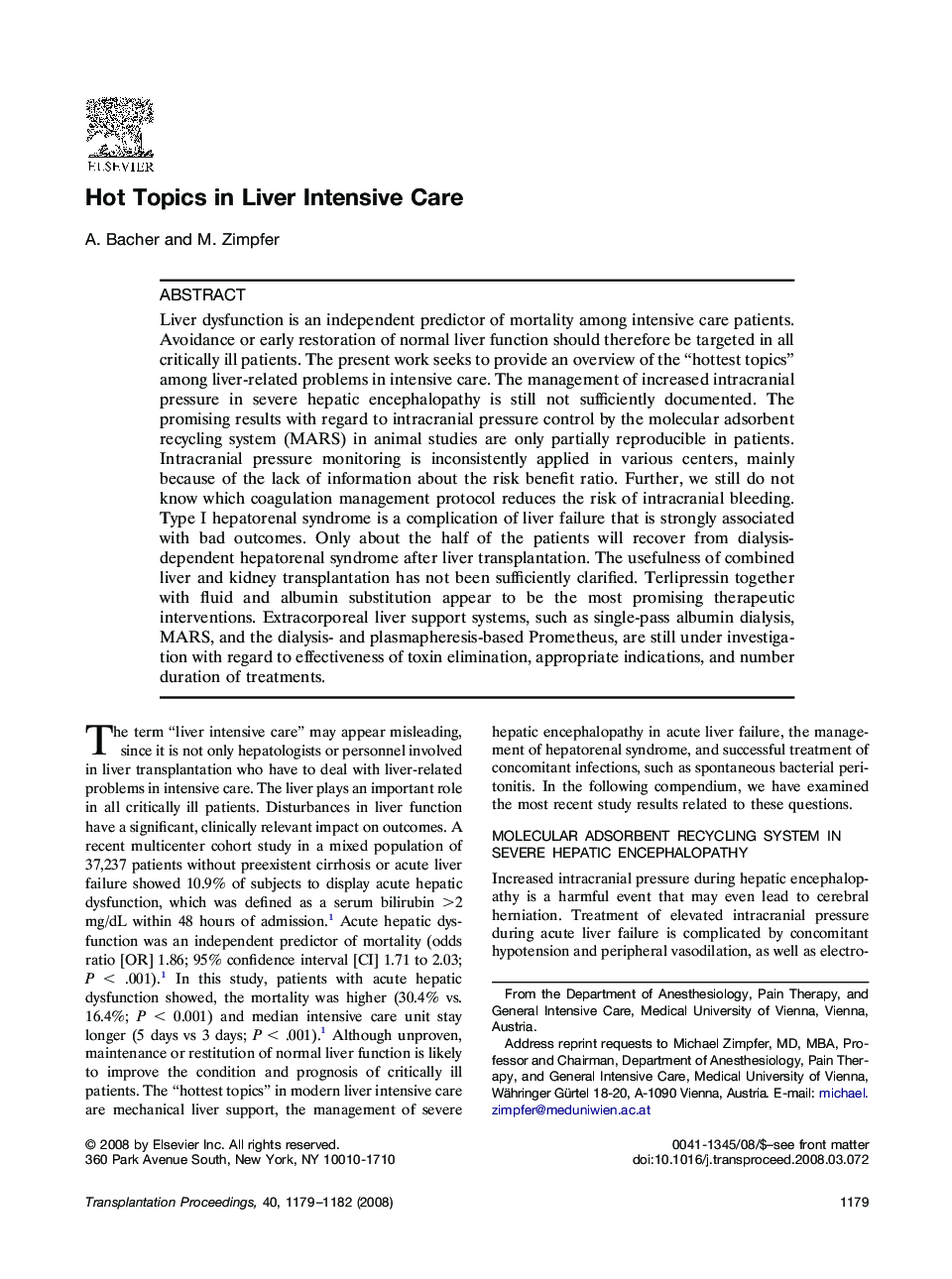| Article ID | Journal | Published Year | Pages | File Type |
|---|---|---|---|---|
| 4262135 | Transplantation Proceedings | 2008 | 4 Pages |
Liver dysfunction is an independent predictor of mortality among intensive care patients. Avoidance or early restoration of normal liver function should therefore be targeted in all critically ill patients. The present work seeks to provide an overview of the “hottest topics” among liver-related problems in intensive care. The management of increased intracranial pressure in severe hepatic encephalopathy is still not sufficiently documented. The promising results with regard to intracranial pressure control by the molecular adsorbent recycling system (MARS) in animal studies are only partially reproducible in patients. Intracranial pressure monitoring is inconsistently applied in various centers, mainly because of the lack of information about the risk benefit ratio. Further, we still do not know which coagulation management protocol reduces the risk of intracranial bleeding. Type I hepatorenal syndrome is a complication of liver failure that is strongly associated with bad outcomes. Only about the half of the patients will recover from dialysis-dependent hepatorenal syndrome after liver transplantation. The usefulness of combined liver and kidney transplantation has not been sufficiently clarified. Terlipressin together with fluid and albumin substitution appear to be the most promising therapeutic interventions. Extracorporeal liver support systems, such as single-pass albumin dialysis, MARS, and the dialysis- and plasmapheresis-based Prometheus, are still under investigation with regard to effectiveness of toxin elimination, appropriate indications, and number duration of treatments.
